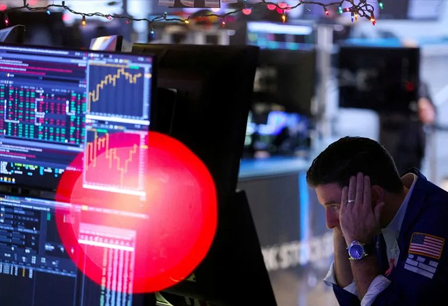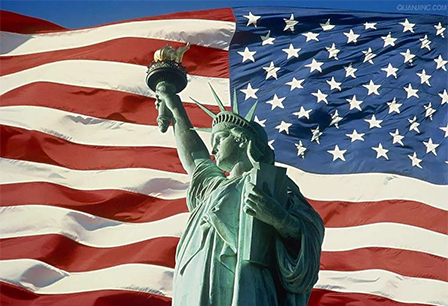U.S. stocks fell deeper into the red Thursday after markets failed to claw back from their worst day since June 2020. The declines extend a recent sell-off in equities ignited by worries the Federal Reserve's interest rate hikes to rein in persistent levels of inflation may spur an economic slowdown.
The S&P 500 slid 0.6% to edge closer toward bear market territory, defined as a close of 20% from its recent high. After logging its biggest drop in two years in the last session, the index is down roughly 19% from its all-time high Jan. 3 and must close below 3837.24 to officially enter a bear market. The Dow shed 230 points following a nearly 1,200-point drop in the last session to close at its lowest level since March 2021. The Nasdaq Composite fell 0.3% after swinging between gains and losses in intraday trading.
"Investors should become accustomed to significant downside and upside moves in stocks, which is common during times of tremendous uncertainty," Claro Advisors managing principal and founder Ryan Belanger said in a note. "We expect the stock market to trade near or in bear market territory for the coming months, creating a frustrating range-bound market that will test the will of many investors."
The losses follow a bevy of weaker-than-expected quarterly results from big-box U.S. retailers that stoked investor fear about the toll inflationary pressures may take on corporate profits and consumer spending.
Target (TGT) lost a quarter of its market value on Wednesday after the company reported an operating margin far below analyst estimates and cut its full-year outlook, citing higher transportation costs due to rising fuel prices.
"Today's broad-based market sell-off concerns the ability of companies to pass along higher costs, something that was questioned but which found somewhat of an answer with the retailer's earnings reports," LPL Financial Chief Equity Strategist Quincy Krosby said in an email on Wednesday. "To be sure, consumers continue to spend, but many of the top retailers are unable to pass along the higher labor costs and higher prices wrought by a still constrained supply chain."
Target's report also follows an earnings miss and forecast cut earlier this week from Walmart (WMT), news that has sent shares of the retail giant down 17% in the last two days, marking the stock’s worst two-day sell-off since 1987.
“Seemingly safe haven stocks, the staples like Target and Walmart, are not immune,” Cresset Capital CIO Jack Ablin told Yahoo Finance Live on Wednesday. “Investors are looking at these stocks and thought that they were safe havens, and now we’re seeing perhaps they weren’t.”
Declines in equity markets Wednesday come on the heels of hawkish remarks from Federal Reserve Chair Jerome Powell at a Wall Street Journal conference earlier this week that strongly signaled two more 50 basis point interest rate hikes were likely in the coming central bank policy-setting meetings.
Uncertainty around the pace and magnitude of the Fed’s rate hiking cycle has stoked pressure across equity markets that has persisted throughout the year as investors worry over the prospect of an economic slowdown if the central bank acts too aggressively. In 2022 so far, the S&P 500 is roughly 18% below its all-time high on Jan. 3, again tip-toeing into bear market territory, while the Dow is down about 14% over the same period and the Nasdaq has fallen deeper into a bear market – 28% below its record closing price in November.
“Chairman Powell’s hawkish comments yesterday afternoon and Target’s shrinking profit margins this morning were too much for the market to handle,” Independent Advisor Alliance CIO Chris Zaccarelli said in an emailed note. “Today’s sell-off shows that growth fears are still gripping investors and this year and the Fed doesn’t have their back.”












